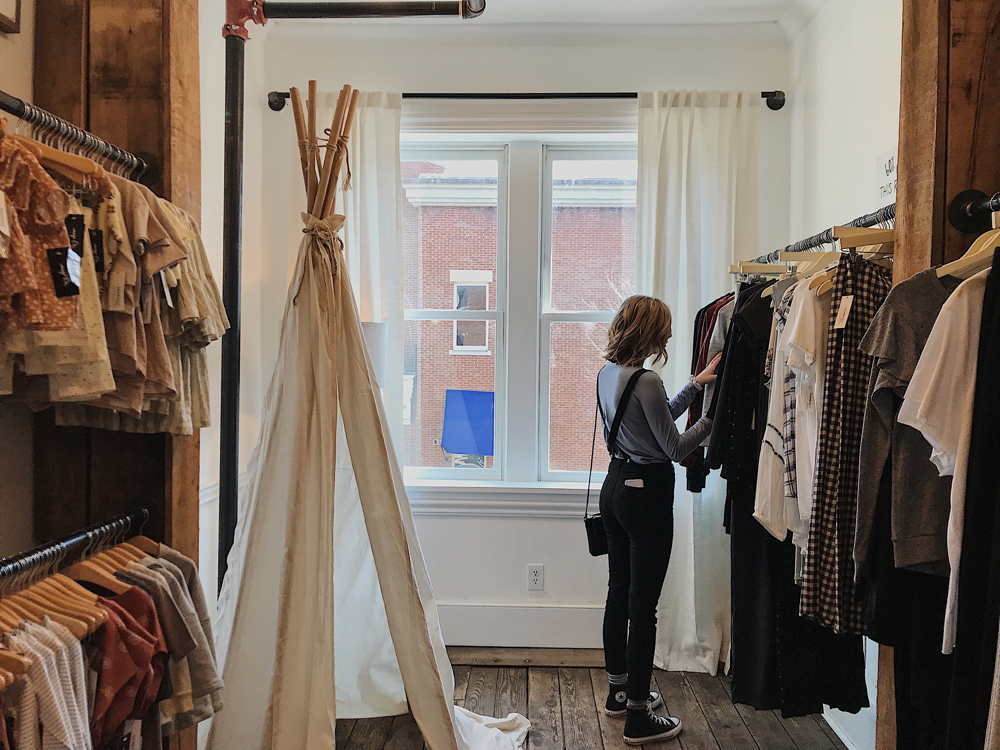Who Is Buying Sustainable Fashion And How? | New Report Reveals
The recent study conducted by the IFM – Premiére Vision Chair reveals that sustainable fashion is currently progressing. But who's really buy? Where? How? Read this article to discover it.
To receive the Luxiders Newsletter, sign up here.
The Institut Français de la Mode-Premiére Vision Chair conducted a new study, including 5,000 respondents and five countries. While France, Germany, the United Kingdom, Italy, and the United States have taken part in the surveys, the document revealed a significant point: Sustainable fashion is progressing.
Six important lessons are pointed out in the study. These six lessons are shaped around stimulating themes: Being heard, being perceived as beautiful, being informed, having a correct sense of quality, caring about the production phase, and achieving accountability.

© Cam Morin via Unsplash
BEING HEARD
Though several questions in the culture are shaped towards the sustainable fashion movement to be heard or ignored by the majority, the eco-responsible interpretation shows success. Indicators confirm this by mentioning the great transition in the industry: Engagement of the major luxury houses and adaptation of the others present that sustainable fashion is not an alienated term anymore, but being watched closely.
The study included the question “Is the fashion industry more or less respectful of the environment than other sectors?” – and the response was pretty positive. 64.3% of French respondents stated that it was as respectful or more respectful, which a six-point increase has been noted compared to three years ago. Germany came up with an eight-point increase when Italy and the US reached their highest levels with 74.7% and 81.5% of respondents who evaluate the fashion industry to be more eco-conscious than other industries. Appreciating that an enhancement in the budget allocated to environmentally responsible fashion is rising, still, the study points out there is progress required to reach sustainability in consumers’ habits.
BEING PERCEIVED AS BEAUTIFUL
A major prejudice against sustainable fashion has often been the incompatibility of the perception of beauty and sustainable garments. Luckily, the study confirms that a shift has happened in the consumers’ minds – they no longer think sustainable fashion is something apart from trends, elegance, or beauty.
The abolishment of the prejudice on “Green cannot be beautiful,” seems to happen soon. Gildas Minvielle, the Director of the IFM Economic Observatory expresses that “These are remarkable results. We are now very close to consensus.”.
BEING INFORMED
Placing the lack of information for the consumers to the core of problems in a sustainable fashion to become a habit for all, the study shows that more than two people (50.4%) of non-buyers in France expressed that they did not know enough about the issue. By 2022, it is proven that this rate will decrease to 33%. On the flip side, a doubled-rate is observed in Germany and the US when it comes to consumers stating that they consider themselves well-informed on the sustainability issue. The study asserts two main sources for this shift to happen: Firstly, the labels on garments became more informative, and secondly, brands’ different channels of communication (media, social networks, website) raised a lot more voice on the sustainability issue.
HAVING A CORRECT SENSE OF QUALITY
Consumers started to engage in a search for quality during their shift towards sustainable fashion. It is stated that they are looking for materials that are natural, recycled, high-quality, and free of toxic products in general. The study formulates that process in three dynamics: Durability, repairability, and second-hand. When durability places itself to the center by the habits of buying less and selecting garments that have a longer life, repairability is evaluated as ‘surprisingly widespread’. Statistics show that no less than 64.2% of French respondents had repaired at least one item of clothing by 2022 when the repairing practice is a quite popular phenomenon of the contemporary fashion scene. It is also mentioned that the brands who offer repairing services are quite impactful in this change.
The last component of the ‘correct sense of quality’ appears as the second-hand. Mentioning that second-hand items are not only chosen for ecological reasons, the fact proven by the study on about half of the women and one-third of the men bought a second-hand item last year contributes to maintaining the lives of good quality pieces and the sustainable transformation.
CARING ABOUT THE PRODUCTION PHASE
Stating that it is important to be produced close to home if a garment is going to be considered sustainable, the respondents came up with promising answers: 82.3% of French, 79% of Italian, and 85% of American respondents have agreed that – therefore, they confirmed the importance of what we call “Made In” phase. Consumers started to pay a lot more attention to where the garments are produced, do they include exploitative practices on labor forces and do they cause carbon emissions during their transportation.
Gildas Minvielle says, “The definition of ‘locally made’ has expanded to include our European neighbors,” by pointing out that this shift will hopefully expand through the geographical borders.
ACHIEVING ACCOUNTABILITY
While consumers have positively responded to being informed on sustainability through labels and media, still, the study lists the ‘reliable’ information as another significant dynamic. Including all national, European, and American ones; regulatory changes on labels and certificates are expected due to that. Pointing out that there are now over 400 eco-responsible labels, the study chose 12 labels to use in the survey and the result came quite divergent. Only the EU Ecolabel is recognized with awareness by 74% of French respondents, while the others came up with difficulties and problems.
Highlight Image: © David Dvoracek via Unsplash
Words:
Tolga Rahmalaroglu
Luxiders Magazine Contributor




